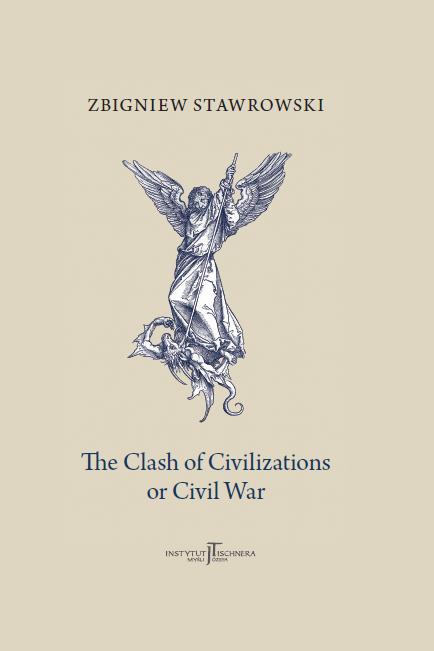Zbigniew Stawrowski, The Clash of Civilizations or Civil War

Wydawca:
Instytut Myśli Józefa Tischnera
Rok wydania: 2013
ISBN: 978-83-60911-14-3
Język: angielski
The texts presented in this book, which I am making available to English-language readers, were written in the years 2000-2008 – they were also an attempt to capture, while still hot, the sense of new, disturbing phenomena, and to offer an explanatory interpretation. Two of them: Brave New World and Sleek Barbarians, (both published in popular magazines, hence their somewhat more casual form) make a diagnosis: they call these phenomena by their name, and at the same time (thus illustrating how closely one is linked with the other), reveal a particular vision of man and human relationships as their common base. In the remaining texts, the reader will find more in-depth philosophical reflections on the political and spiritual foundations of our civilization. Two essays devoted to democracy, analyze the relationship between the liberal democratic political system of the state and the erosion of moral order which is progressing in Western countries. The last two texts (inspired by Joseph Weiler’s book: A Christian Europe) ask directly the most important question concerning the modern world, in which various projects of cultures and civilizations collide – the question about the proper meaning of religious freedom. The point is to rethink the very basis of interpersonal order and to outline a perspective in which (taking into consideration all the differences that divide people) the following would be possible: encounter, dialogue and a friendly life in cooperation. (excerpt from the Introduction)
—————————————————————————————————————–
Przedstawione w książce w języku angielskim teksty, publikowane wcześniej po polsku w latach 2000-2008, są pisaną na gorąco próbą uchwycenia sensu nowych, niepokojących zjawisk kulturowo-cywilizacyjnych. Dwa z nich Nowy wspaniały świat i Barbarzyńcy w garniturach stawiają diagnozę: nazywają po imieniu te zjawiska, a zarazem – ukazując, jak łączą się one ściśle ze sobą – odsłaniają szczególną wizję człowieka i relacji międzyludzkich jako ich wspólną podstawę. W pozostałych tekstach czytelnik odnajdzie bardziej pogłębioną filozoficznie refleksję nad politycznymi oraz duchowymi fundamentami naszej cywilizacji. Dwa eseje poświęcone demokracji, analizują związek, jaki łączy polityczny ustrój liberalno demokratycznego państwa z erozją moralnego ładu, która postępuje w krajach Zachodu. Dwa ostatnie teksty, zainspirowane książką Josepha Weilera Chrześcijańska Europa, stawiają wprost najważniejsze pytanie dotyczące współczesnego świata, w którym zderzają się różnorodne projekty kulturowe i cywilizacyjne – pytanie o sens wolności religijnej. Chodzi tu o przemyślenie raz jeszcze samych podstaw międzyludzkiego porządku oraz zarysowanie perspektywy, w ramach której możliwe byłoby – przy wszystkich dzielących ludzi różnicach – spotkanie, dialog i wspólne przyjazne życie. (fragment Wprowadzenia)








